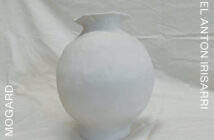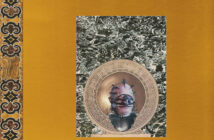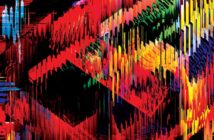While Mexican electronic producer Fernando Corona (aka Murcof) and French classical pianist Vanessa Wagner have traversed distinctly different musical career paths, one thing that cohesively unites them is a shared love of minimalism. It’s this shared interest that originally led the two artists to collaborate on a live performance six years ago that saw them re-interpreting the works of twentieth century composers such as Arvo Part, John Cage and Morton Feldman. Six years on, this album ‘Statea’ offers up the fruits of the duo spending years refining and capturing the live essence of their performance, and the results are extremely impressive.
One of the things that’s immediately apparent is the understated subtlety of Murcof’s electronic contributions. While they certainly form an integral part of the arrangements here, with beats occasionally shifting into the foreground, a lot of the time he focuses more upon treating the echoes and aftertones of Wagner’s playing until they’re instruments and droning atmospherics of their own. They’ve certainly got a broad canvas to work with here, too. The opening piece, John Cage’s ‘In A Landscape’ almost reaches eleven minutes in length, as delicately rippling melodic keys trace a path against warm ambient drones before sudden bass notes usher in a sense of brooding darkness, the bright piano motifs circling against a growing sense of foreboding as Murcof adds digital treatments to the crashing chords. Towards the end, an ominous slow rhythmic pulse begins to rise out of the background drones as slow-motion snare crashes get dubbed out against muted bass kicks and eerie minor-key synth flourishes.
If the aforementioned track manages to introduce the sense of vast, widescreen atmosphere going on here, the duo’s reinterpretation of Arvo Part’s ‘Variations For The Healing Of Arinushka’ sees twinkling minimalist notes being digitally stretched off into the distance before a throbbing minimal techno pulse rises into the foreground, the entire track seeming to propel itself forward like a train as the dramatic keys build in intensity against the rattling snares, only for the entire track to suddenly trail off into a feather-light solo piano finish. Elsewhere, the duo’s take on Aphex Twin’s ‘Avril 14th’ offers up the one contemporary track here as well as this album’s most concise piece, threading the original’s delicate melodies through a feather-light backdrop of fluttering synthetic rhythms and trailing ambient tones.
If it’s perhaps the one inclusion here that remains fairly reverential to the original version, elsewhere, the duo’s reinterpretation of Erik Satie’s ‘Gnossienne 3’ sees the ominously delicate piano melodies being counterpointed by darkly lurking electronic treatments that see them being twisted into shadowy after-echoes of themselves, in an inspired take that amplifies the growing sense of fear in a way that would never have been technically possible in Satie’s time. In many ways it’s emblematic of why these reinterpretations work so well, with Murcof and Wagner tuning in to the emotional atmospheres contained in these compositions, and then working to amplify them even further. In short, ‘Statea’ offers up what’s easily one of 2016’s biggest highlights.




